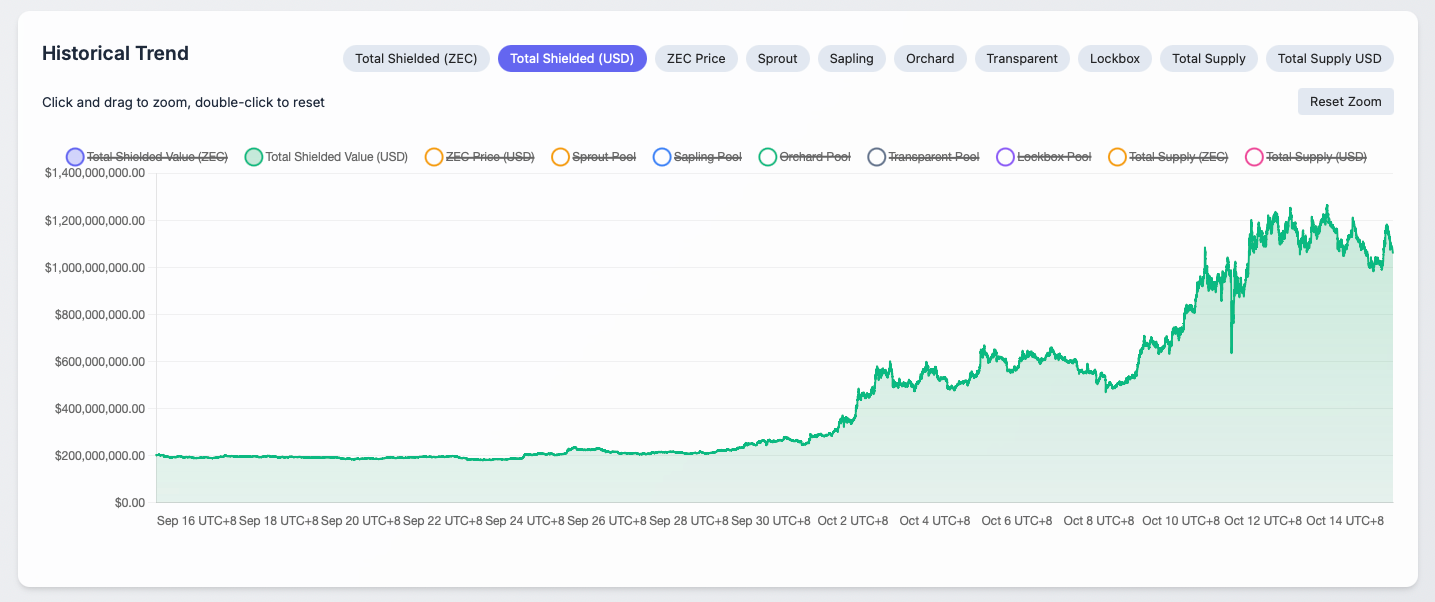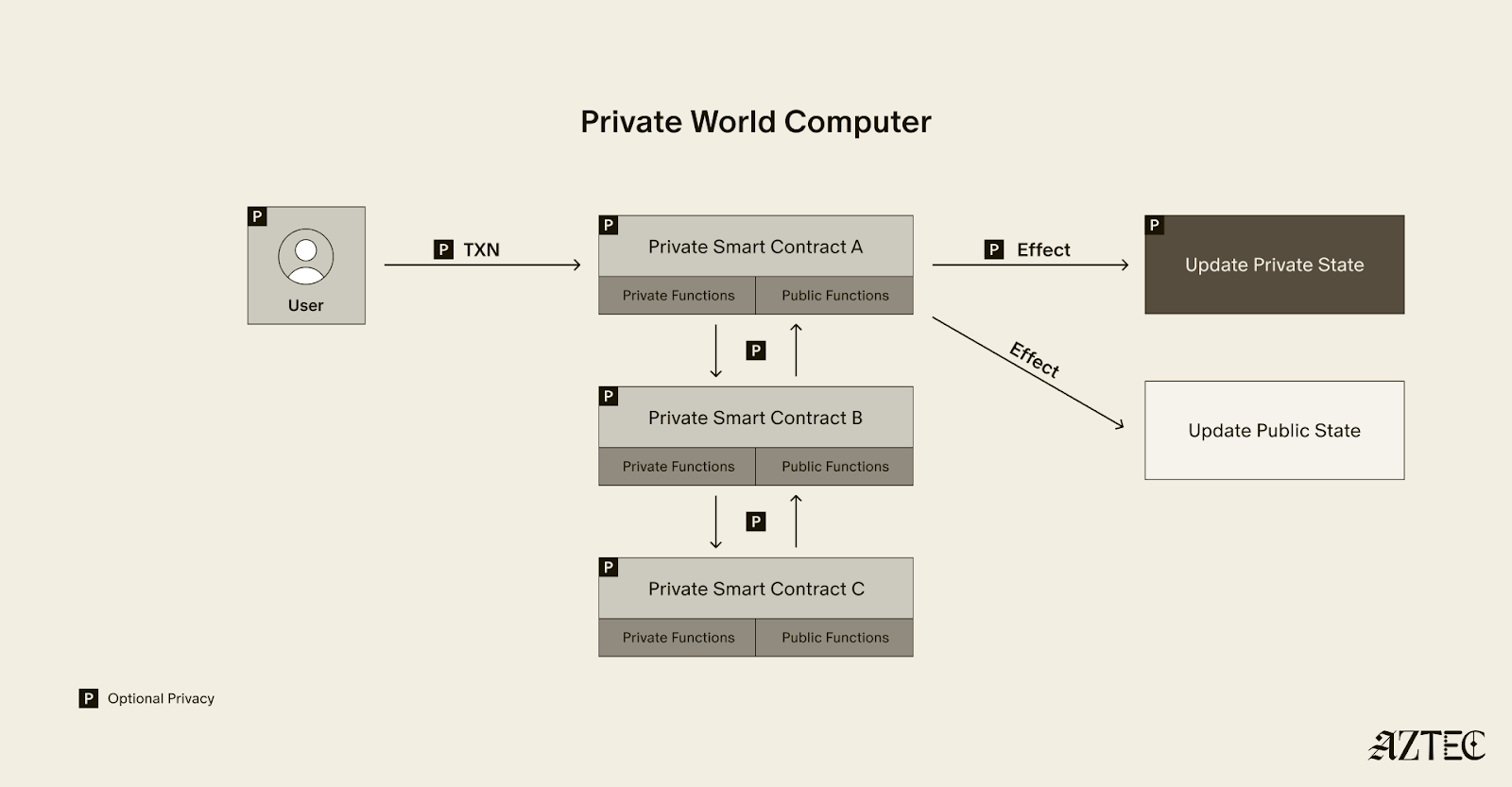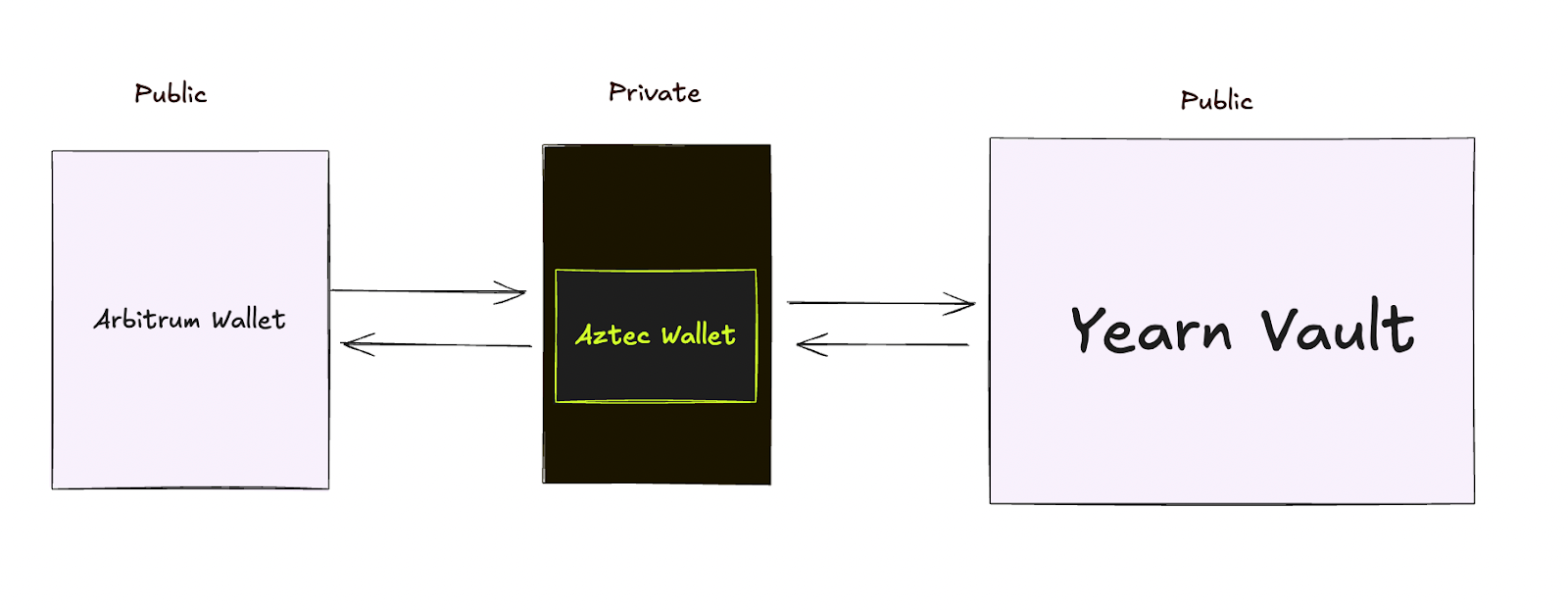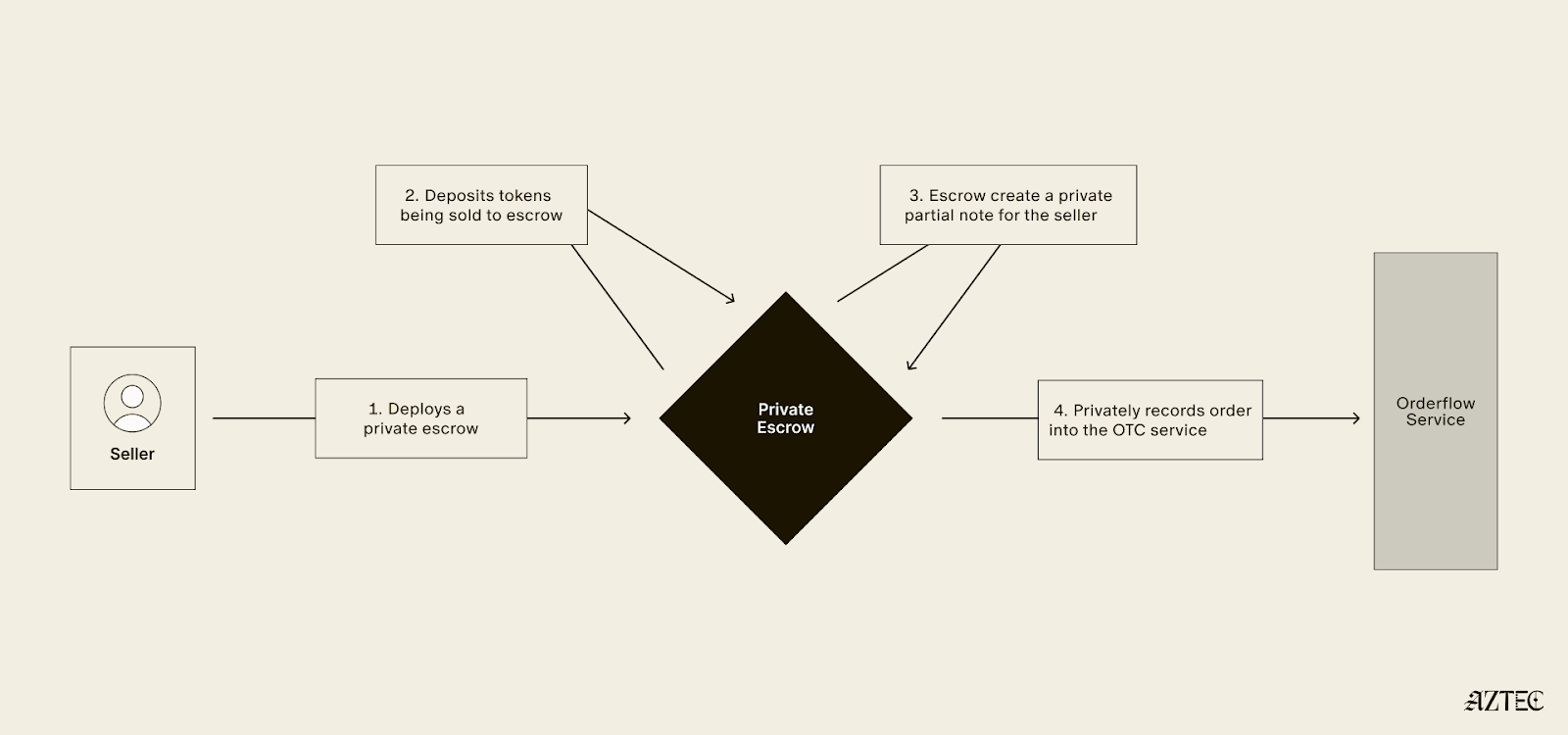Watch this: Alice sends Zcash. Bob receives USDC on Aztec. Nobody, not even the system facilitating it, knows who Alice or Bob are.
And Bob can now do something with that money. Privately.
This is the connection between private money and a private economy where that money can actually be used.
Zcash has already achieved something monumental: truly private money. It’s the store of value that Bitcoin promised (but made transparent). Like, digital gold that actually stays hidden.
But here's the thing about gold - you don't buy coffee with gold bars. You need an economy where that value can flow, work, and grow. Privately.
Money Under the Mattress
While other projects are trying to bolt privacy onto existing chains as an afterthought, Zcash is one of the oldest privacy projects in Web3. It's achieved what dozens of projects are still chasing: a truly private store of value.

This is critical infrastructure for freedom. The ability to store value privately is a fundamental right, a hedge against surveillance, and a given when using cash. We need a system that provides the same level of privacy guarantees as cash. Right now, there's over $1.1 billion sitting in Zcash's shielded pool, private wealth that's perfectly secure but essentially frozen.
Why frozen? Because the moment that shielded $ZEC tries to do anything beyond basic transfers: earn yield, get swapped for stablecoins, enter a liquidity pool, it must expose itself. The privacy in this format is destroyed.
This isn't Zcash's failure. They built exactly what they set out to build: the world's best private store of value. The failure is that the rest of crypto hasn't built where that value can actually work.
The Privacy Landscape Has an Imbalance
What happens when you want to do more than just send money? What happens when you want privacy after you transfer your money?

Private Digital Money (i.e., “Transfer Privacy,” largely solved by Zcash):
- Zcash: est. 2016
- Everyone else: building variants of digital money at the transaction or identity level
- Monero
- Ethereum privacy pools
- 0xbow
- Payy
- Every privacy stablecoin project
- Every confidential L2
- Every privacy project you've ever heard of
Private World Computer (i.e., After-the-Transfer Privacy):
- Aztec
Everyone else is competing to build better ways to hide money. Zcash has already built the private store of value, and Aztec has built the only way to use hidden money.
The Locked Liquidity Problem
Here's the trillion-dollar question: What good is private money if you can't use it?
Right now, Zcash's shielded pool contains billions in value. This is money in high-security vaults. But unlike gold in vaults that can be collateralized, borrowed against, or deployed, this private value just sits there.
Every $ZEC holder faces two impossible choices:
- Keep it shielded and forfeit all utility
- Unshield it to use it and forfeit all privacy
Our demo breaks this false sense of choice. For the first time, shielded value can move to a place where it remains private AND becomes useful.
The Private World Computer
Here's how you can identify whether you’re dealing with a private world computer, or just private digital money:
Without a private world computer (every other privacy solution):
- Receive salary privately → Can't invest it
- Store savings privately → Can't earn yield
- Send money privately → Recipient can't use it privately
With a private world computer (only Aztec):
- Receive salary privately → Invest it privately
- Store savings privately → Earn APY privately
- Send payment privately → Recipient spends it privately
This is basic financial common sense. Your money should grow. It should work. It should be useful.
The technical reality is that this requires private smart contracts. Aztec is building the only way to interact privately with smart contracts. These smart contracts themselves can remain completely hidden. Your private money can finally do what money is supposed to do: work for you.
What We Actually Built
Our demo proves these two worlds can connect:
- The Vault: Zcash
- The Engine: Aztec (where private money becomes useful)
We built the bridge between storing privately and doing privately.
The technical innovation - "partial notes" - are like temporary lockboxes that self-destruct after one use. Money can be put privately into these lockboxes, and a key can be privately handed to someone to unlock it. No one knows who put the money in, where the key came from, or who uses the key. You can read more about how they work here. But what matters isn't the mechanism.
What matters is that Alice's Zcash can become Bob's working capital on Aztec without anyone knowing about either of them.
As a result, Bob receives USDC that he can:
- Earn yield on
- Trade with
- Pay suppliers with
- Build a business on
- All privately
Why This Required Starting from Scratch (and 8 years of building)
You can't bolt privacy onto existing systems. You can't take Ethereum and make it private. You can't take a transparent smart contract platform and add privacy as a feature.
Aztec had to be built from the ground up as a private world computer because after-the-transfer privacy requires rethinking everything:
- How state is managed
- How contracts execute
- How proofs are generated
- How transactions are ordered
This is why there's only one name building fully private smart contracts. From the beginning, Aztec has been inspired by the work Zcash has done to create a private store of value. That’s what led to the vision for a private world computer.
Everyone else is iterating on the same transfer privacy problem. Aztec solves a fundamentally different problem.
The Obvious Future
Once you see it, you can't unsee it: Privacy without utility is only the first step.
Every privacy project will eventually need what Aztec built. Because their users will eventually ask: "Okay, my money is private... now what?"
- Zcash users will want their $ZEC to earn yield
- Privacy pool users will want to do more than just mix
- Private stablecoin users will want to actually… use their stablecoins
This demo that connects Zcash to Aztec is the first connection between the old world (private transfers) and the new world (private everything else).
What This Means
For Zcash Holders: Your shielded $ZEC can finally do something without being exposed.
For Developers: Stop trying to build better mattresses to hide money under. Start building useful applications on the only platform that keeps them private.
For the Industry: The privacy wars are over. There's transfer privacy (solved by Zcash) and after-the-transfer privacy (just Aztec).
What’s Next?
This demo is live. The code is open source. The bridge between private money and useful private money exists.
But this is just the beginning. Every privacy project needs this bridge. Every private payment network needs somewhere for those payments to actually be used.
We're not competing with transfer privacy. We're continuing it.
Your private money yearns for the private economy.
Welcome to after-the-transfer privacy. Welcome to Aztec.





